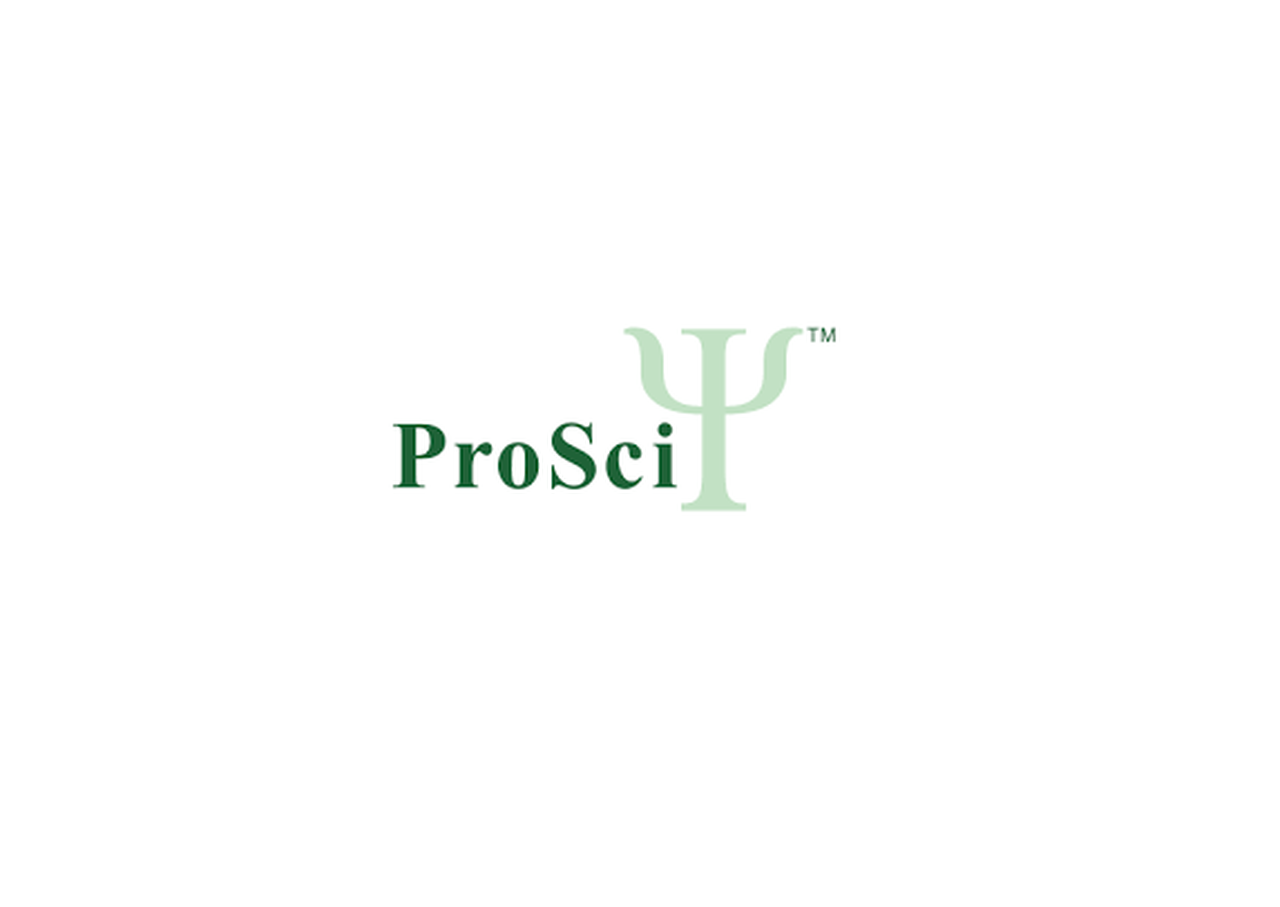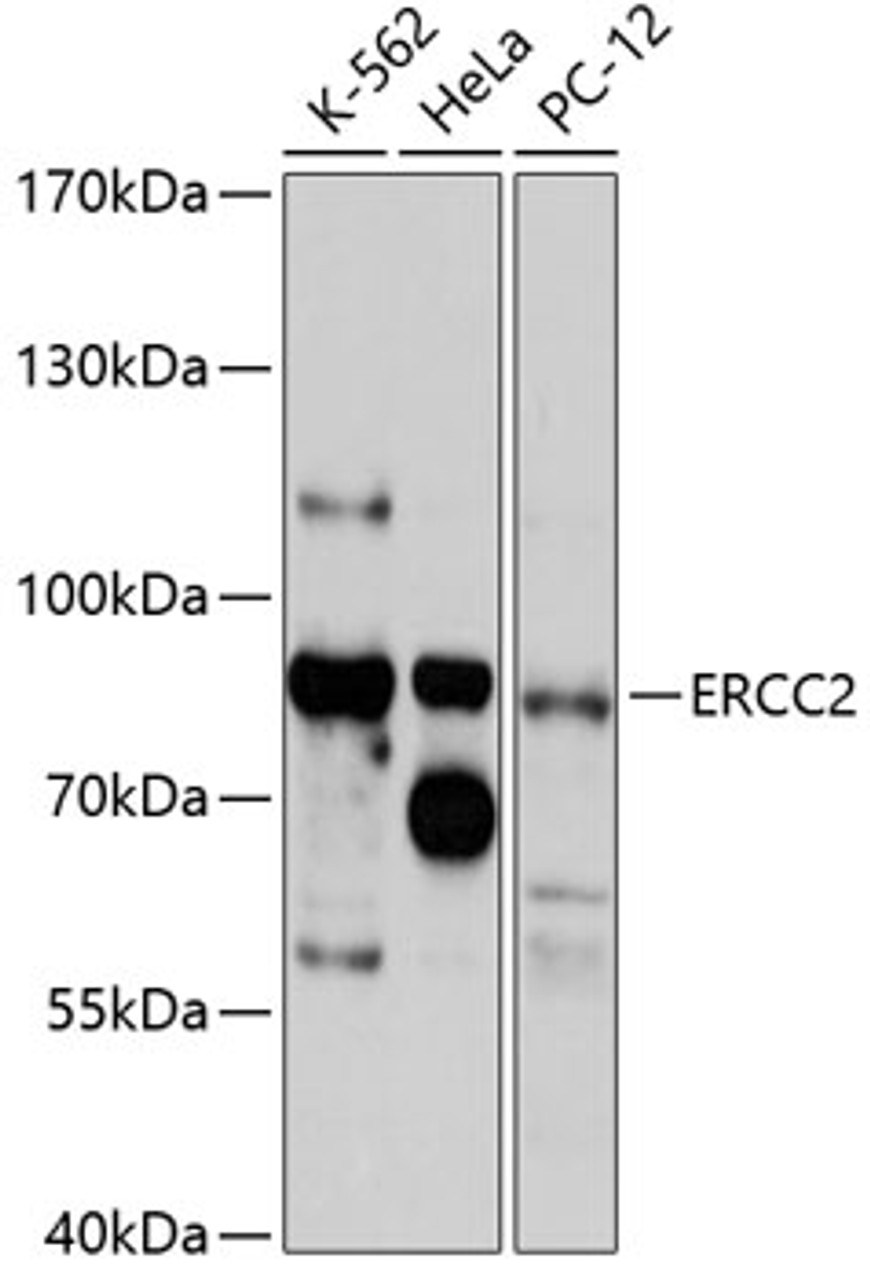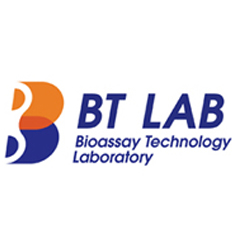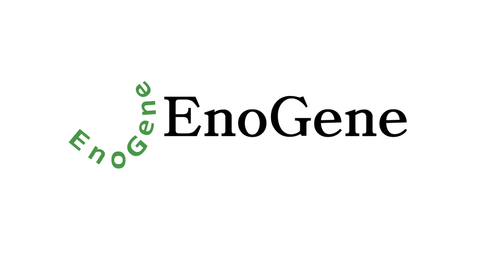Product Description
ERCC2 Antibody | 14-917 | ProSci
Host: Rabbit
Reactivity: Human
Homology: N/A
Immunogen: A synthetic peptide of human ERCC2
Research Area: Apoptosis, Cell Cycle
Tested Application: WB
Application: WB: 1:200 - 1:500
Specificiy: N/A
Positive Control 1: K-562
Positive Control 2: HeLa
Positive Control 3: PC-12
Positive Control 4: N/A
Positive Control 5: N/A
Positive Control 6: N/A
Molecular Weight: Observed: 87kDa
Validation: N/A
Isoform: N/A
Purification: Affinity purification
Clonality: Polyclonal
Clone: N/A
Isotype: IgG
Conjugate: Unconjugated
Physical State: Liquid
Buffer: PBS with 0.02% sodium azide, pH7.3.
Concentration: N/A
Storage Condition: Store at 4˚C. Avoid freeze / thaw cycles.
Alternate Name: COFS2, EM9, TFIIH, TTD, TTD1, XPD, general transcription and DNA repair factor IIH helicase subunit XPD, BTF2 p8CXPD, DNA excision repair protein ERCC-2, DNA repair protein complementing XP-D cells, TFIIH 80 kDa subunit, TFIIH basal transcription factor complex 80 kDa subunit, TFIIH basal transcription factor complex helicase XPB subunit, TFIIH basal transcription factor complex helicase XPD subunit, TFIIH basal transcription factor complex helicase subunit, TFIIH p8TFIIH subunit XPD, basic transcription factor 2 80 kDa subunit, excision repair cross-complementation group 2, excision repair cross-complementing rodent repair deficiency, complementation group 2, xeroderma pigmentosum complementary group D, xeroderma pigmentosum group D-complementing protein
User Note: Optimal dilutions for each application to be determined by the researcher.
BACKGROUND: The nucleotide excision repair pathway is a mechanism to repair damage to DNA. The protein encoded by this gene is involved in transcription-coupled nucleotide excision repair and is an integral member of the basal transcription factor BTF2/TFIIH complex. The gene product has ATP-dependent DNA helicase activity and belongs to the RAD3/XPD subfamily of helicases. Defects in this gene can result in three different disorders, the cancer-prone syndrome xeroderma pigmentosum complementation group D, trichothiodystrophy, and Cockayne syndrome. Alternatively spliced transcript variants encoding different isoforms have been found for this gene.
 Euro
Euro
 USD
USD
 British Pound
British Pound
 NULL
NULL














